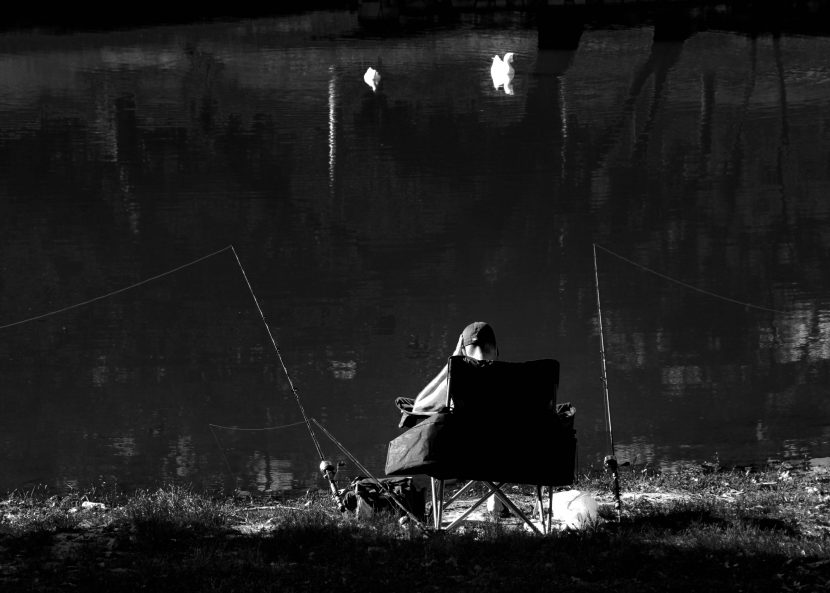No plan here, just thoughts. It’s Sunday as I begin writing this, second day for me of a four-day weekend. Timing.
Lack of attention bedevils me. I have things to do, a wide variety, and I get befuddled by which I should pay most attention. It matters because I end up scattering my attention widely and so get little done in each endeavor. Some of my friends understand this, but not all.
This morning I got out of bed (I hesitate to say “awoke” because I wouldn’t classify my condition that way) and stumbled through my morning routines. Making coffee is so embedded in my brain that I think if I sleep-walked that is one of the things I would do. Donna was already up, tending to the dog. To be honest, I felt like going back to bed, but I intuited that it would only waste time. Another hour or two would not improve my ability to feel whole, just delay it. Further honesty requires me to admit that mornings like this frighten me a little, because I feel so “off” that I think something must be wrong.
I’m just tired, really. An hour or two after getting out of bed I feel pretty much as I’ve always felt. Slow but present.
I’ve had a number of conversations of late about intelligence. Genius, even. I think a genius would be internally unaware of it. My father, I sometimes feel, was a genius. Is. (Yes, he’s still alive, but now so impaired by deafness and poor sight that interaction is virtually impossible.) He never believed so. He railed about how other people seemed so stupid, how they overlooked, missed, or never figured out things which seemed so obvious to him, and he blamed laziness or prejudice or ambivalence. How could they not see? When I pointed out to him that he himself was far from ordinary, he bridled. No, that couldn’t be it. He did not see himself as a particularly smart man. But he was dogged, possessed of a degree of focus and ability to concentrate I found unachievable. His own opinion would never allow recognition of his “gifts,” if gifts they were.
I’ve been accused—recently—of being “superior.” Not a compliment.
We live in a culture that prizes knowledge only when it’s somewhere else. It’s cool when it’s on tv or in a lecture hall or, most importantly, when it makes someone a lot of money. But when it lives next door to us we resent it. When we have to talk to it every day we hate it, because it feels like someone is showing off, trying to be better than everyone else, getting off on making others feel stupid. I’ve never understood that. It’s not like all the information isn’t there for everyone to access.
It’s a choice of what we find important. As far as I’m concerned, too many people are too invested in things that don’t matter. (Is that me being judgmental? Why, yes, it is. Unapologetically. You have to choose, you have to decide. Others, I realize, level their judgment at me to the same or greater degrees. What good is that novel you just read? Isn’t that a waste of time? Well, the same could said about the goal that player just made that you reacted to orgasmically. If you’re going to judge me for having no interest in your passion, I’m going to judge you for having none in mine. Let’s lay it out and compare worth some day and see how what stacks up.)
(I have noticed that this phenomenon is not limited to intellectual pursuits. I’ve been insulted in the past for being in good physical condition. I lift weights, it shows. I’ve been treated as somehow weird by people who…well, any deviation from an assumed norm will intimidate people who just can’t seem to bring themselves to do the work to achieve something they might actually want to do. It’s as if they think they should have been born with these characteristics and when it turns out they have to do some actual work, instead of embracing the opportunities, they turn to resentment of those who do.)
I didn’t intend to complain this morning. But I have some things on my mind. This is a free-flowing post. Read at your own peril.
I made myself go to the gym this morning. I halfway expected to be unable to finish a workout. Instead, as often happens, about half to two-thirds through, I felt better. Blood flowing, I came awake.
And on the drive home I started having conversations in my head.
Yes, I talk to myself. I always have. My interactions with my fellow creatures have often been frustrating to me. Things I miss, don’t get, say wrong, hear wrong, respond inappropriately. A good deal of what people see today is a carefully constructed façade designed to offer an interface that works in group settings. Not fake, no, but selective and practiced. At one time I did try putting a fake front up and it never worked. It took a long time for me to realize that, though, because part of the front was a very selective filter that kept useful interaction out.
(That annoying piece of advice, so often given, to just “be yourself” used to infuriate me. Firstly, how the hell does one do that? I mean, really. First it assumes you know who you are. Second it assumes that you have a choice about how you come across to other people. You do, as it turns out, but it rarely comes automatically. And thirdly, it fails to take into account whether or not you like who you may be as “yourself.” Don’t people realize that “being yourself” may well be the last thing you want to be because you find whatever that is to be…wanting? Of course they do, they’ve been having the same struggle, but probably don’t realize it. All those “popular” people, do we really believe that’s who they really are? If you could look inside to see, would it be what you see on the outside? No. So, stupid advice, well-meant, but as often as not self-defensive.)
I’m sitting here in my office, trying to rework a short story that has resisted conclusion for months. Like most of my short stories in the last several years, it seemed promising because I had a very cool idea. The idea remains cool. Getting it across as a compelling story is another matter. And, as usual, I am procrastinating by working on this post instead.
I’m listening to Walter Piston. He was an American composer, mid-20th Century. I stumbled on him during one of my periods of exploring obscure classical music. You can listen to him and hear a bit less experimental version of Barber and Copland and maybe Hanson. (Again, who? Yeah.) I’ve got a few CDs of his symphonies. They make excellent background for writing, but when you really listen to them you hear a familiar strain of anxiety that seems a part of most American neoclassical. You listen to Copland and the others and you can hear a boldness, a brashness that seems distinctly American. But along the way, especially in the symphonies, comes a stretch of uncertainty. I call it anxiety. The anxiety of not being so sure of yourself, perhaps, or the anxiety of knowing you have a lot of responsibility and can’t really carry it. (I sometimes think Ives, whom I cannot really stand, was about nothing but that uncertainty.)
The best science fiction carries that anxiety in its guts. We’re boldly going where we don’t belong and nervous about it, but eager. so eager to see the next neat thing.
So I get home, muscles still humming from a decent workout, brain filled with a silent conversation about an unresolved issue, and Donna is still doing landscaping in the back yard. I help by moving some heavy stones, then retreat inside, eventually migrate down to the office, and start riffing on these stray thoughts.
Most days, lately, I write a few sentences, correct some errors, tweak. Then I scoot to the other computer and cruise. Yesterday I listened to a report on “downgrading” humans, which talked about how the information explosion has been coopted by the so-called Attention Economy to the detriment of actual intellection.
Downgrading Humans. According to the report, our brains are not equipped to deal with the information deluge constantly poured through them. We get overwhelmed, the tools we have to sort wheat from chaff are inadequate, we can’t tell noise from signal after a while, and soon we’re just clicking through from one bit to the next in a parody of research. The limitation offends, I’m sure. I’m resentful of my inabilities, especially when it comes to knowledge. But it’s an academic kind of resentment now that rarely obtrudes into the kind of seething animosity a teenager might feel when being told no. It’s more frustration now when I run against my own lack of information and ignorance when I’m in the middle of a project or a conversation.
The problem I imagine with what is being described as “downgrading” is that indulging the immersion in click-throughs can come to feel like genuine learning.
Plus, there’s something addictive about. The dazzle of bright, shiny objects.
There’s a big market for self-help books. A lot of them are practical, how to do things, but a lot of them are about changing your life, becoming a new or different or better person. Many border on genuine psychology, but most seem to be manuals for self-improvement that only glance off the deeper aspects of who we are. Years ago, groping toward some kind of self-knowledge, I read a lot of them. Fritz Perls, Leo Buscaglia, Eric Fromm, others. I gleaned useful things from them all, but it seemed as I grew older, less and less of what I read in these books offered anything truly useful. Reality never conforms to neat paragraphs of “if this, then do that.” But occasionally there was genuine insight. I stopped reading them after I shifted into philosophy. But there’s a huge market. You would think we live in a world of remarkably healthy self-actualized people. I have no idea, but I have come to believe that most of these books sell to people who believe that all they have to do is read them and that is sufficient. Acting on the advice? Well.
I’ve taken a hard look at my own habits. I’ve become craggier in some ways. The state of the world has a bit to do with this, but in general I’ve been dissatisfied with my own progress along various fronts. I wondered, after hearing about this phenomenon, if I were a victim of this. Turning to the very thing that is largely the source of the problem is an irony past stating, but it is true that even though an overwhelming amount of dross permeates the internet, there is much that is worthwhile. A degree of ordinary scepticism is required and some robust filters, but you can find out useful things. So I did a bit of research on internet trends and realized quickly that I am a weekend tourist at worst. This thing distracts me, but I spend far more time reading books than ever I spend online.
But the distraction is enough to derail my concentration. It’s worse when I’m not working on a specific project. The discipline of the project keeps me focused.
Of course, then there are the days when my hindbrain cries out for relaxation. For what Donna calls “vegging.” One of the things my parents, worrying all through my upbringing that they would fail to implant it, managed to instill is an ethic that demands I waste no time. So even the things I do for “relaxation” seem to require a practical reason, a purpose. I’ve invented a number of excuses to fool my subconscious so it will leave me alone when I’m indulging the “frivolous.” I wish I could just…
I listen to music to put me in moods. Moods to write, to read sometimes, to work out. Music is a deep pool of inspiration and replenishment for my soul. We live in an age where the available sounds are greater than at any time. The possibilities are amazing. I hear better performances, more intriguing compositions, wilder explorations today than ever before, in just about any genre of music you care to name. You would think we could find a common soundtrack with all this to choose from, but the click-through ethic renders too many too impatient to sit and truly listen.
Or does it? That same volume of data may just serve to lend cover to large groups of people who do exactly that—sit and listen. They don’t answer surveys, they don’t buy in predictable manners, they don’t feed the pop machinery. It may be that we’re about to hear from them in a Big Way. I have noticed a lot of young people buying more books, books you might not predict they would buy. And of course the books being published…I can’t say that they are “downgraded.” No more than they ever were. And the best is better than ever before.
I take my optimism where I can find it.
Among the things I want to do before I’m gone: publish a dozen more books, record and release an album of original music, mount a couple of exhibits and possibly publish a monograph of my photographs, and maybe start drawing and painting again. State like that it would seem I need another lifetime. One thing I’ve come to appreciate (though perhaps not experienced yet) is that a lifetime doesn’t have a specific time limit and you can have more than one, overlapping or contiguously.
We’ll see what can be done with that.
Thank you for indulging me.







